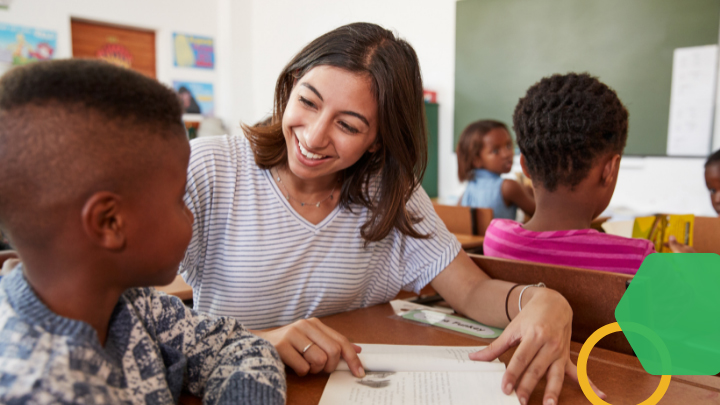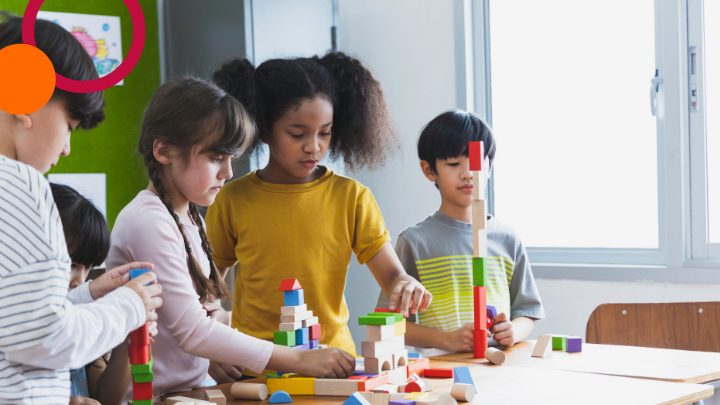For many students, the holiday season brings lots of joy, and the next couple of months will be filled with anticipation of the family time and celebration ahead.
For other students, the prospect of being home for Thanksgiving or for two whole weeks of winter break can be daunting. If you’ve developed strong relationships with your students, they may feel a mix of emotions about being apart from their daily classes and routine with you.
Special school events—such as assemblies, plays, and shortened days—can bring fun and excitement into the day, but they may also disrupt schedules and procedures that students have come to expect and rely on.
Additionally, the holiday season can be stressful or overwhelming for students’ families. As a result, some of your parent conferences or phone calls might take on a different tenor during this season.
In short, the holiday season can evoke many feelings for students, both positive and negative. These varying reactions to the holiday season may bring about some changes in the behavior or mood of your students and their families as the holidays approach. You may see increased energy, fidgeting, inattention, moodiness, misbehavior, stress, or any combination of the above in your classroom!
Here are seven tips on how to support your students during the next few weeks
1. Be consistent.
Your students count on you to create a warm, safe, productive, and inclusive space for them in the classroom (to learn more about how to do this, explore BetterLesson’s How to Create an Inclusive Learning Environment strategy). Although it may feel tempting to “do something different” right before break, students will benefit from consistency and familiarity in your teaching.
2. Lend a listening ear when you can.
If you notice that a student seems stressed, withdrawn, or anything else unusual, take a few minutes outside of class to let the student know that you’re happy to chat anytime. If you don’t think your student will want to speak with you about what’s going on, consider looping in another staff member with whom you think the student might be more comfortable.
3. Be mindful of making promises you don’t have control over keeping.
Be careful not to tell your students “I’m sure your vacation will be amazing!” or anything else that may not, in the end, come true.
4. Make an extra effort to use positive framing—especially in family communication.
Remember to have a growth mindset about your students’ performance, to emphasize action steps going forward, and to let parents, guardians, and peers know about positive news! Consider exploring BetterLesson’s Positive News Board strategy to learn more.
5. Be careful of your own questions and assumptions around the holidays.
Some questions that seem straightforward enough—”Are you excited to eat turkey?” “What are you asking for for Christmas?”—can be more complicated for a student whose family may or may not have the means to cook a Thanksgiving feast or do a gift exchange, or for students whose families celebrate different holidays from what you celebrate.
Instead, try to ask questions that allow the student to guide the discussion, such as: “What’s something you’re looking forward to over break?,” “Do you like to make New Year’s resolutions?,” or “What’s your favorite thing about winter?” To learn more about your students, you can also consider having your students engage in an activity such as the ones in BetterLesson’s I Wish My Teacher Knew strategy.
6. Laugh & breathe.
Laughter is still one of the best ways to beat stress. Take time to incorporate humor into school activities and assignments, or build in a few minutes for deep breathing or other mindfulness activities from the Mindfulness Techniques BetterLesson strategy.
7. Ask for support.
If you are particularly worried about a student or have a strong sense that your student will have a challenging holiday season or winter break, consider looping in a school social worker, counselor, or administrator who can offer additional support to the student or their family.
Remember that consistency, compassion and respect go a long way in helping your students to navigate their emotions any time of year. But during the holiday season, taking extra steps to show you care can be a special gift that makes a real difference in your students’ well-being.








